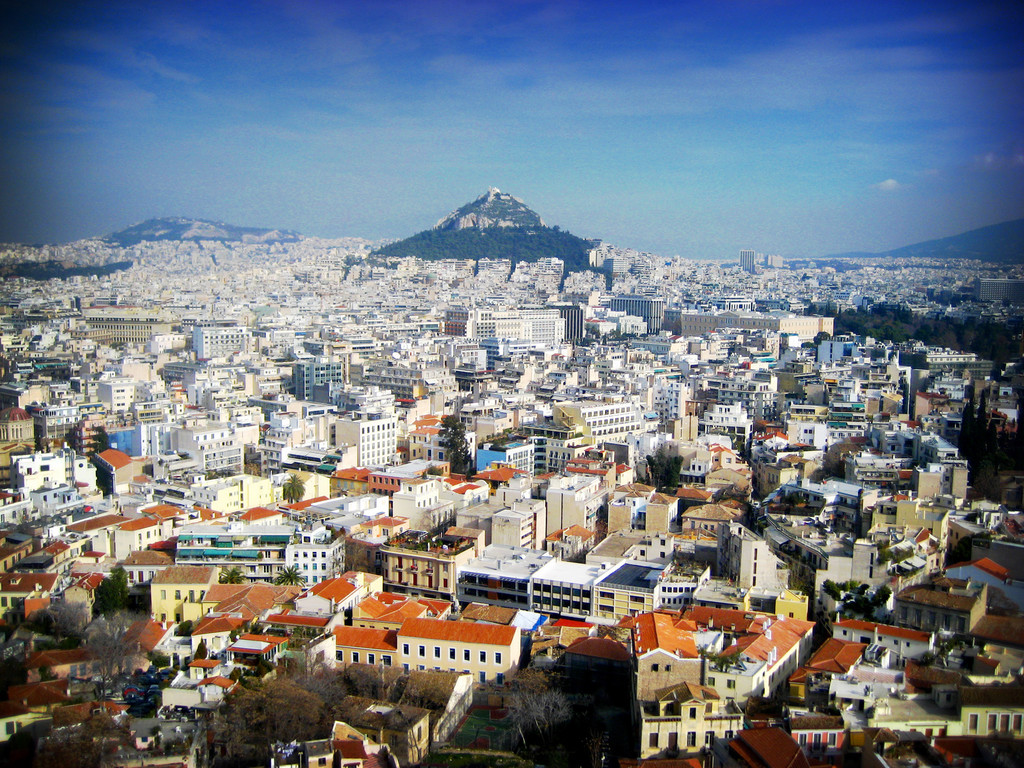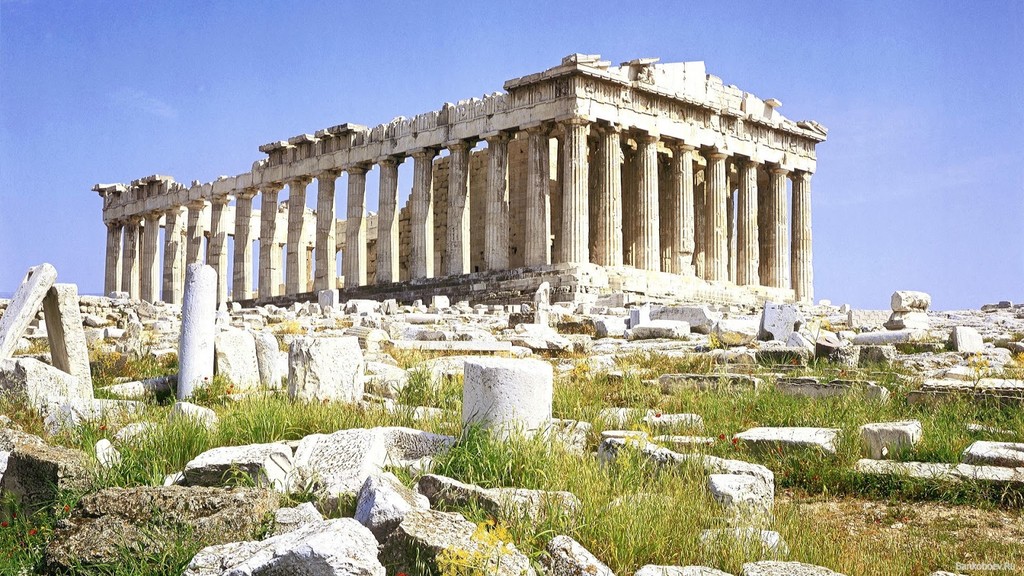Chaos in Athens
Why did you choose to go to Athens in Greece?
I chose to do my Erasmus in Athens because the University of 'Bellas Artes' has some connections in other parts of the country and as an Erasmus student, I was told we were allowed to go there. Also, I needed to go to a country where I didn't know the language, because learning another alphabet was perfect for my artistic project.
How long did the placement last? How much grant did you receive?
I was there between February and June 2008. I got €1200 from Barcelona University I think. I didn't get any other grants from Mec, the Catalonia government or any legislators because I don't have a scholarship and because I wasn't born in Catalan...
What is the student life like in Athens?
Athens is a big city, you can feel the student atmosphere all around the city. My university department was in Piraeus (the port), a few kilometres away, so I had to get there by bus. There were other university departments in this area, and also in the centre. The economics department was famous for its really cheap food and its parties. There are Erasmus parties all week (but personally they are not my favourite).

The university and the students are really involved in the politics of the country, there are lots of political groups within the university. They are used to having meetings and letting everyone speak their turn. English is spoken almost everywhere and they are really fascinated by Spanish, both the language and the culture.
Would you recommend the city and the University of Athens to other students?
I would recommend doing an Erasmus placement in any country, the more different to your home country the better. Athens is manic, but it is good to take a break sometimes from the bustle so that you can remember what is important.
And visiting the neighbouring islands is a real bonus...
What is the food like in the country?
Fantastic. Mediterranean, with a hint of Turkish food but at the same time very much like Spanish food. And quite cheap, to a certain extent.
How did you find your accommodation?
I stayed in a Youth Hostel in the centre for a few days. Then I spent a month in Ioannina, another university town in the north of the country, where I started to learn some Greek. During the course, it seemed that it was included with my accommodation, but that was only if I was studying there. But we came to an agreement anyway.
In Athens, the first day I went to the Erasmus office, I was offered accommodation in the student residence there. However, for the last month, we had to leave the residency because of problems between the university and the owner of the building, so I don't think this accommodation is in use now.
Was the accommodation expensive? What were the prices in Athens like in general?
As Erasmus students, they charged us 100€ a month to stay in the Bellas Artes student residency. I was sharing a massive room, with a terrace overlooking the rest of the building and other bedrooms shared the same terrace. In the same room, there was a fridge, an electric oven and a bathroom. Everything was new. When I spoke to other Greeks, they got it completely for free, so I suppose there was a scam to save money. In Ioannina, students paid around 35€ a month but the room was smaller yet had its own bathroom.

You had three free meals a day with your 'student pass'. There was also a free gym, and you got 50% off travel. The state museums are free. It is also much cheaper to eat out rather than going to the supermarket to buy food.
What is the language like? Did you go to a language course in the University?
I did an IELC course in Ioannina. In Athens, I was told there would be one but it never happened. There are some small associations that give Greek classes to internationals for free.
When whispering, Greek sounds exactly the same as Spanish. If you learn a few words, people will think that you are a native. The same happens for Greek people who learn Spanish, they don't have a different accent, there are just a few grammatical mistakes.
What is the cheapest way to get to Athens from your city?
I now live in Vigo, and there is no direct flight to Athens from here. The cheapest flights I've seen are from Barcelona with Vueling. There are discounts if you have a young person's Catalan card. Iberia offers discounts for Erasmus students travelling with suitcases. You can send papers for free with MRW...
What places would you recommend to go out in Athens?
Plaka neighbourhood is the most touristic, there are lots of pubs there. It is next to Monasteraki, which I prefer. There are lots of people in the streets. Omonia square is also impressive, there is something going on there every day: bonfires, car shows etc. It is in the Anarkista neighbourhood and is just behind the Economics department, where there are some great parties.
And to eat in Athens, can you tell us some of your favourite places?
For 1. 30€, you can get a 'girópita' which is like a kebab, with meat, salad and sour cream. You can get them from everywhere. The cafes are expensive there, but are really big and you tend to spend 2/3 hours there. They have sofas and plastic chairs.
What cultural places can you visit?
Of course, you have to go to Acrópolis, but it is better to go earlier when there are lots of guided tours taking place. In this country, you have to enjoy everything, talk with everyone (they will always talk to you first), spend time outdoors, go to the Pireuas market, see the changing of the guards in Zintagma, climb up the small hill in Omonia, etc.
Any advice that you would like to give to future students going to Athens?
- There is a cultural difference that is hard to get used to at first. When they want to say 'No', the word is 'nai' which is said 'ne'. They usually say it with a nod of the head upwards which could seem like they're saying 'that way' or 'what did you say? '. Sometimes, they click their tongue or raise their eyebrows. They both mean 'No'.
- They are very open, in the shops, they give you a lot of attention (not just tourists) and offer you a coffee which is normal there.
- It is quite common that they strike.
- Also, employees often disappear for a few hours during the day because they go to get coffee! They are not punctual (classes often start an hour late! ).
- They love their traditional dances and even young people get involved.
- The hospitals are not open every day, so you have to check what day it is, even for emergencies.
- There is lots of crafts-work, and specifically handmade sandals (which are fitted personally) and they are really worthwhile. Mine have lasted me 4 years and I wear them all the time.
- The food is delicious.
- There isn't a train network there, and in some places, the buses stop at 18:00. There is an international train ticket, like an Inter-rail ticket for this area and it is much cheaper. It is called Balkan Flexi-pass.
- The carnivals are very extravagant in Patras (Ploponeso).
- The old town of Olympia is beautiful.
- Epidaurus is spectacular. It has hundreds of beautiful hidden corners and it very untouched. It is definitely worth visiting the islands.
- Clothes there are quite expensive, but there is a Zara.
Before packing your suitcase, it is best to be patient. You will return very relaxed.
Photo gallery
Content available in other languages
- Español: Caos en Atenas
- Français: Chaos à Athènes
- Português: Caos em Atenas, Grécia
- Italiano: Caos ad Atene
Share your Erasmus Experience in Athens!
If you know Athens as native, traveler or as exchange student... share your opinion on Athens! Rate different characteristics and share your experience.
Add experience →

















Comments (0 comments)